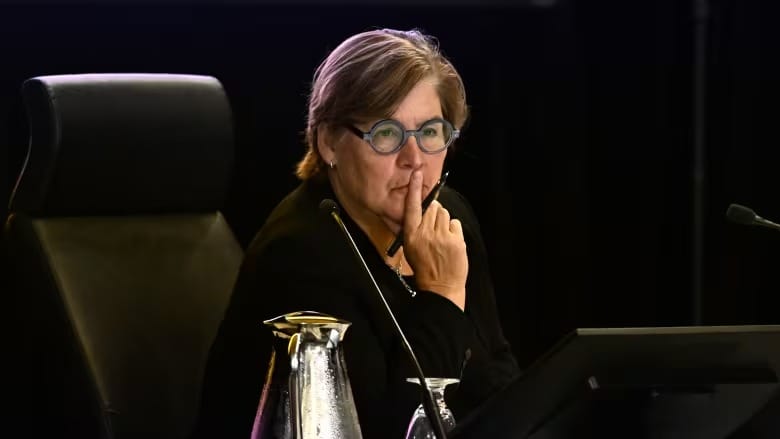China, India pressuring ethnic media outlets in Canada, inquiry hears
Journalists pressed to parrot government positions and suppress 'red line' subjects, inquiry hears

During a hearing on foreign interference, it was revealed that the governments of China and India are attempting to sway diaspora communities in Canada by pressuring ethnic media outlets to align with government narratives and avoid discussing certain "red line" topics.
Two Chinese Canadian journalists and one Indo-Canadian journalist shared that both nations employ a combination of incentives and threats to influence media coverage and reporting styles. They indicated that consulates and embassies have warned they would withdraw advertising support in response to unfavorable media coverage in Canada.
Gurpreet Singh, an Indo-Canadian journalist, mentioned that the Indian government has denied visas to reporters whose work it disapproves of and has threatened to revoke Overseas Citizen of India cards, which allow Canadian citizens to enter India without needing a visa each time they travel there.
Singh noted that the Indian government is particularly sensitive to reports concerning support for an independent Sikh state, the Kashmir conflict, the caste system, and the Air India bombing. "You get a lot of pushback from the Indian consulate or Indian diplomats if you deal with these issues," he stated.

Victor Ho, the former editor-in-chief of Sing Tao Daily Vancouver, identified China's "red line" topics for news coverage as Taiwan, Hong Kong, Tibet, the overseas Chinese democratic movement, and the Uyghur minority. "These are the taboos," Ho said during the inquiry. "You cannot release ideas that oppose the CCP (Chinese Communist Party)."
Ronald Leung, who hosts a weekly television program, explained that the Chinese government seeks to amplify issues that create internal divisions between Chinese Canadians and the broader population. "Drug policy is one of the big topics in the Chinese community because of China's history; people in general dislike drug abuse. They hate drugs," he said. "So there is a significant difference with Canada's approach to this issue. Other topics include gender identity, crime and safety, Indigenous issues, and human rights. When China attempts to magnify those conflicts in Western countries, we see the same amplification of problems in Canadian Chinese media."





